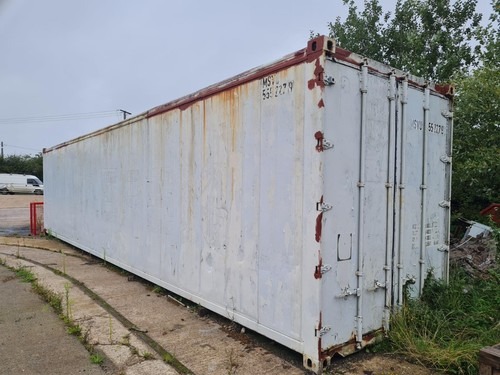Everything You Need to Know About 20ft Shipping Containers
Shipping containers have actually become a considerable part of modern-day logistics, and the 20ft shipping container is one of the most popular sizes in the market. Whether 20f Shipping Containers For Sale are considering buying one for storage, shipping, and even converting it into a distinct home, understanding the specs, benefits, and uses of a 20ft shipping container can help assist your decision.
Understanding the Dimensions and Specifications
Standard Dimensions
| Specification | Measurement |
|---|---|
| Outdoors Length | 20 ft (6.06 m) |
| Outside Width | 8 ft (2.44 m) |
| Outside Height | 8.5 ft (2.59 m) |
| Inside Length | 19.4 ft (5.9 m) |
| Inside Width | 7.7 ft (2.35 m) |
| Inside Height | 7.9 ft (2.39 m) |
| Tare Weight | 2,200 kg (4,850 pounds) |
| Payload Capacity | 28,000 kg (61,729 lbs) |
| Maximum Gross Weight | 30,480 kg (67,200 pounds) |
Container Types
While the basic 20ft container is commonly used, various types are likewise available, each matched to specific needs.
- Requirement Dry Container: The basic model, used primarily for basic cargo storage.
- High Cube Container: An additional foot taller than standard containers, enabling extra packing area.
- Refrigerated Container (Reefer): Designed for temperature-sensitive goods.
- Open Top Container: Used for oversize cargo that can not fit through the doors.
- Flat Rack Container: Ideal for heavy loads and devices, supplying a flat surface.
Advantages of a 20ft Shipping Container
- Versatility: 20ft shipping containers have different applications, from shipping products to on-site storage or perhaps leisure housing.
- Cost-efficient: Smaller than 40ft containers, they frequently come at a lower price, making them more accessible for little organizations and people.
- Easier Transportation: Their size permits easier handling, transport, and placement without the requirement for specific equipment.
- Toughness: Constructed from robust steel, shipping containers are developed to withstand harsh shipping conditions, making them lasting and reputable.
- Modularity: Can quickly be stacked or linked to create larger structures or configurations, ideal for temporary offices or storage backyards.
Typical Uses
- Storage Facilities: A popular choice among companies for safe, weather-proof storage of tools and materials.
- Pop-up Shops and Cafés: Entrepreneurs have artistically utilized containers to establish short-lived retail areas.
- Houses and Cabins: The trend of container homes has actually led numerous to transform 20ft containers into compact livable spaces.
- Vacation Rentals: Unique stays have emerged through shipping container conversions.
Considerations Before Purchase
| Aspects | Factors to consider |
|---|---|
| Condition | New, utilized, or refurbished; examine for rust or damage. |
| Transport | Understand transport expenses and logistics. |
| Permits | Check local zoning laws for shipping container use. |
| Insulation | Consider insulation for temperature-sensitive applications. |
| Versatility | Alternatives for modifying the container for particular needs. |
Frequently Asked Questions (FAQ)
1. Just how much does a 20ft shipping container expense?
The average price for a 20ft shipping container varies from ₤ 1,500 to ₤ 3,500, depending upon its condition and adjustments. New containers cost more, while utilized and refurbished alternatives can be cheaper.
2. Can you reside in a shipping container?
Yes, many individuals reside in converted shipping containers. They can be insulated and created to fulfill living standards; however, guarantee compliance with local structure codes.
3. Are shipping containers water resistant?
Shipping containers are created to be weather condition resistant, but gradually, seals might break down, so routine maintenance is advised.
4. How do I move a shipping container?
Moving containers requires specific equipment, such as a flatbed truck or a container dolly. It is advised to employ specialists for safe transport.
5. Does a shipping container need a structure?
While not always required, positioning a container on a level structure can help prevent settling and enhance stability.
6. What is the lifespan of a shipping container?
With appropriate maintenance, a shipping container can last 25 years or more. Different elements, such as usage and environmental conditions, will affect its life-span.
A 20ft shipping container can be a versatile possession suitable for numerous applications, from storage options to ingenious home. Its size, resilience, and economical nature make it attracting both services and specific consumers. By understanding the specifications, benefits, and practical applications, potential purchasers can make educated decisions that finest fit their requirements. As the world moves towards more sustainable and effective services, shipping containers will likely stay a feature of contemporary living and logistics.

